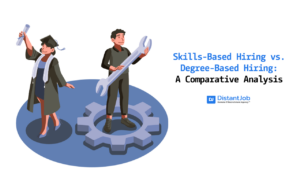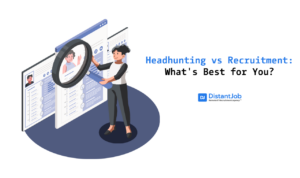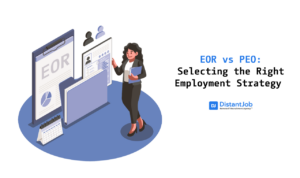Is Placement Of Employees an Effective Recruitment Method?
With as many as 40% of US companies have outsourced their recruitment function, you may be looking to outsource to a third party. But that’s where it starts to get confusing, with some companies talking about recruitment, some about placement, and some about both! So what is employee placement, and why is it important to get right?
What Is A Placement?
Employee placement, meaning the process of assigning an employee to the right department or team. There are three different scenarios where you might hear about employee placement. These are:
- As a synonym for recruitment, an agency may look for suitable candidates to place with a company and use the term placement to cover that.
- As part of the onboarding process. Particularly in larger companies, where candidates are joining a large department. An employee placement example might be if someone is hired for a customer service role and then placed on the technical support team.
- Where a company is downsizing, and they have assigned somebody to find alternative roles for staff that has been let go.
In all three situations, essentially, the same thing is happening. A person is assessed for their skills, qualities, and personality and supported to find a place in an organization they will be happy with.
Why Is Employee Placement Beneficial?
Getting the cultural fit right is becoming increasingly important in recruitment, as Millenials and now Gen Z is looking for work that inspires as well as pays. This is where employee placement can really come into its own, as new recruits are put in teams with managers or other team members where they will get well and work together towards a shared vision.
Employee placement benefits include:
- Increased retention
- Decreased absence
- Increases productivity
- Increases loyalty
Well-placed workers are happy workers.
What Is The Difference Between Job And Placement?
Perhaps the easiest way to explain the difference is with an employee placement example: A job is an overall role, for example, a software developer or a DBA. The placement would be the specific role that you carry out for the company – front-end or back-end developer, or whether you join Tony or Steve’s team.
A placement may be long-term or temporary; for example, students take placements as part of their studies at university, or you may initially be placed with one team for a project, then transferred to another when that project ends.
What Are The Types of Employee Placement?
Employee placements come in a few different varieties. These are:
- Direct hire – the employee is hired for a particular role
- Temporary – either the role or the placement are for a fixed period of time
- Temporary to permanent – if the employee does well, the role can become permanent
- Student placement – supporting the studies of a student during breaks or in a gap year
What Is The Process of Job Placement?
Here are the 5 main steps of the placement process:
1. Understand the Job Offer
This means crafting a job description that is going to appeal to the right candidates, so you’ll need to be clear on what skills and experience are required and what is just nice to have. Personal qualities you are looking for are a good guide and will be helpful for effective placement.
2. Set the Timeline
It’s important for your recruiter to understand whether you can take your time to find exactly the right person or whether they are on a deadline to give you a shortlist.
3. Meet With Your Recruiter
Make sure that everyone is clear on responsibilities and who will be carrying out what tasks. For example, you might want the recruiter to create a qualified shortlist or just to let you see a wide variety of CVs.
4. Review Cvs As They Are Sent To You
The recruiter will usually then arrange interviews. Following this, you’ll want to give feedback to both successful and unsuccessful candidates.
5. Make The Offer
Let the placement officer decide on the right assignment for your new hire.
How to Find the Right Employment Placement Agencies
While recruitment places a lot of emphasis on finding candidates with the right skills and experience, placement is more about personalities. It’s the skill is understanding how a candidate might work with a team leader or line manager and how they might respond to the pressures of a role.
To do this, you need three things:
- An understanding of your company culture – what type of personalities would do well working in your business? Do they need a cool, laid-back demeanor, or are you looking for a hyper-focused go-getter? Now find a recruiter who can reflect this for you.
- An understanding of the team dynamics – teams can have their own defined cultures, created by the mix of personalities in them and the way the team is led. You need to consider how well the person will fit into that team. What screening does your recruiter offer, will they look at personality and soft skills?
- An understanding of the candidate – what are their strengths, weaknesses, and ambitions? How will they sit within the company and the team – is this going to be a happy and long-lasting match? A good recruiter should be able to answer those questions for you as they’ll know their chosen candidate inside out.
Partnering With the Right Employee Placement Agency
One of the things that make DistantJob stand out as an IT recruitment agency is that we offer a highly personalized service when sourcing the very best tech talent from around the globe for our clients. We get to understand your business, your team, and most importantly, your culture, and we make that part of our shortlisting process.
If we send you a CV, then we know this candidate will be perfect for you – that’s why 80% of our clients go on to hire one of the first three candidates we shortlist for them. If that sounds like the kind of support you need with employee placement, get in touch today or visit our offices in Montreal.



